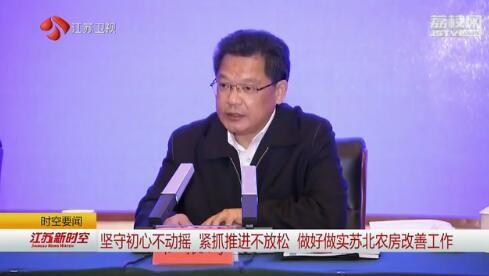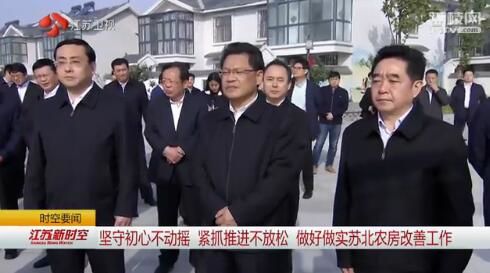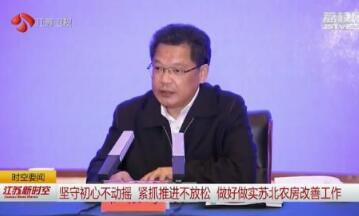East China’s Jiangsu province is making headway in the improvement of rural housing in the northern regions, according to an on-site promotion meeting held Monday in Suqian city. Ren Zhenhe, deputy secretary of the provincial party committee, presided over the meeting. Deputy Governor Fei Gaoyun made specific arrangements for future work.

The improvement of rural housing is conducive to building a well-off society in an all-round way as it meets the requirements of the times and the needs of the people, according to a statement released after the meeting.
It is a long-term, systematic project to improve rural housing, making it necessary to accurately grasp the work requirements, conform to the laws of urbanization and village development, and make overall plans for rural planning, the statement said.
To promote the improvement of rural housing in northern Jiangsu, we must adhere to the people-centered development thinking and scientifically formulate agricultural housing improvement policies so as to improve the quality of life of the farmers and balance the supporting public services, the statement said.
The CPC country committee and county government should be held accountable for the improvement of rural housing, according to the statement.

A strict monitoring system is called for in the improvement of rural housing while reforms should be made to perfect the rural collective property rights system and rural governance system, the statement said.
In another development, Jiangsu released on Monday the first batch of provincial demonstration projects in northern Jiangsu. 29 projects are included in the demonstration due to their high construction quality, good public service, excellent environmental conditions, and cultural characteristics.
These typical models will provide a replicable and duplicable experience for the improvement of housing conditions for farmers in northern Jiangsu.
34 counties in northern Jiangsu have finished the optimization of their township and village layout planning. This year, 849 projects are planned to be implemented, and 775 projects have been started. The annual improvement task of 100,000 households is expected to be completed on schedule.






